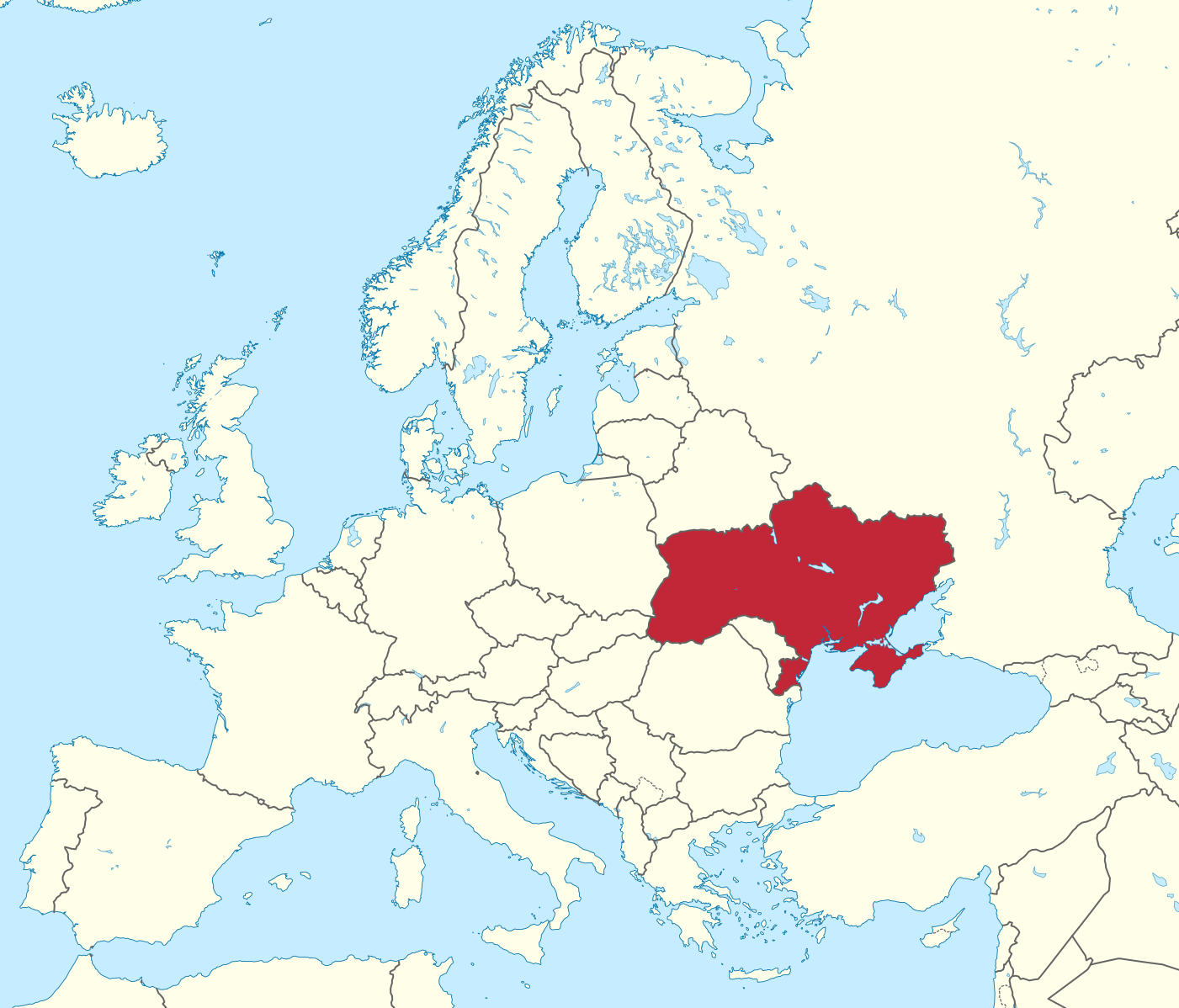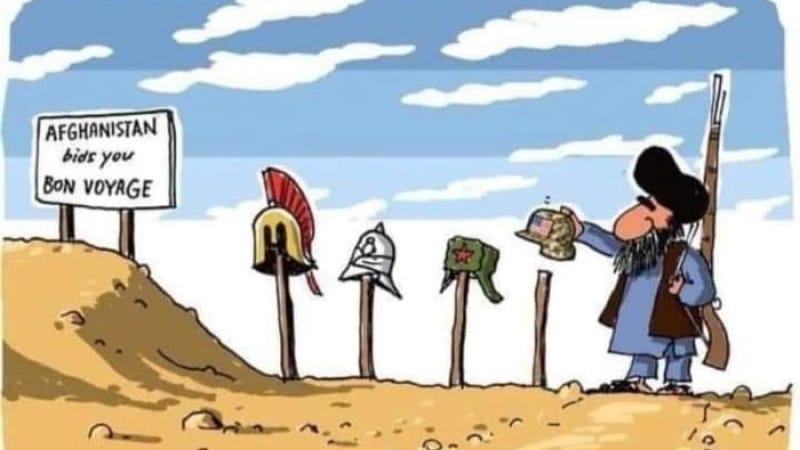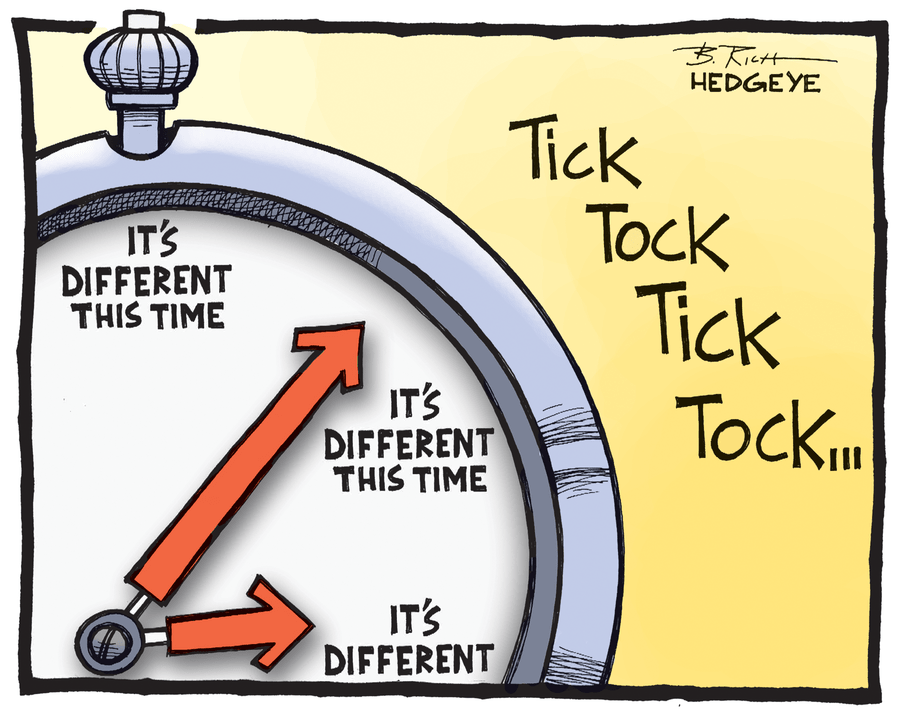si vis pacem, para bellum
the US is poorly suited to play at empire building. we should stop.
si vis pacem, para bellum.
if you want peace, prepare for war.
this ancient dictum pertains today in every respect just as it did in the days of publius flavius. there are no exceptions. there is no “it’s different this time” and now as then, paper promises make poor shields against aggression.
this was known in europe in the first half of the 20th century so widely that “9mm parabellum” ammunition is actually named after the tail end of that very maxim.
but the west spent much of the end of the 20th century and the beginning of the 21st forgetting it. the soviet empire crumbled. the berlin wall fell. and like so many other parts of sowell’s wonderfully apt descriptor of “trading what worked for what sounded good” foreign policy and defense too got turned into an aspirational exercise in self-deception and self-congratulatory self-harm.
i am no fan of overseas military adventurism. i believe it’s bad policy and not in keeping with the underlying ethics of a republic or of free people possessed of rights and liberties. i object to it on moral grounds.
others will doubtless make arguments about “but we’re fighting to promote those values!” and we can go round and round on whether or not this is true and if so whether it constitutes a valid expression of such aims, but i’m not going to do so here.
i will sidestep that issue by raising another and like tanks driving around the maginot line, argue that it does not, in fact, actually matter because there is another issue that dominates: the US is terribly, horribly, outlandishly bad at foreign policy and would not know which end of a “global influence” to point at the enemy (assuming it had any idea who “the enemy” was) if you handed us one.
and when you do hand it to america, we will prove this in short order.
over and over.
we are simply too inept and short sighted to play these games in the real global leagues. it’s intrinsic to our form of government. we won’t get smarter guys and better plans next time, and even if we did, they will soon be replaced by guys who will gleefully go back to screwing it up.
these are the facts on the ground and they lead to what i believe to be an inescapable conclusion:
for the good of everyone, the US should stay home and let the world handle the world. when we try to make things happen, we just disrupt balances of power, make enemies, incur costs, and in the end, give the game away.
it winds up worse.
but this need not be a bad thing. perhaps the true american way is and should be to stay home and stick to our own knitting instead of playing at world policeman and empire builder. such inclinations were strongly urged by our founders and served us well in the 19th century. perhaps it is time we once more recognize this fundamental aspect of our character as a people and make of it an asset instead of a liability.
these recent moves from russia have been being teed up since the 90’s. and this is part of the problem.
players like russia think in decades.
the US thinks in terms of news cycles.
players like russia see the realpolitik chessboard board and plan 7 moves ahead.
the US would lose to a drunk chicken at tic tac toe because we mistook platitudes about values for base reality.
this is not new. it’s been that way since woodrow wilson at least.
we create non-viable states and regimes and scatter them around the globe like some sort of johnny appleseed of instability. this winds up serving no one, least of all those we purport to help, and everyone seems to know it but us.
our road to misadventure is paved with a lack of understanding of history. most americans struggle to find ukraine on a map. hell, they struggle to tell you when the civil war took place. so let’s start with a little primer, shall we?
first, a map:
modern ukraine as an independent state came to be as a result of the collapse of the soviet union. it declared independence in 1991. it juts deep into russia and comes quite close to moscow. anyone who played “risk” as a kid knows that holding ukraine was the key to defending asia. (that game has some real educational aspects built in)
and yet, every time we made noises about admitting eastern europe and or ukraine into NATO, we seemed to forget that we were asking to set up camp in the russian foyer. but russia remembered. for a nation that went so bananas over weapons in cuba, the US has an odd blind spot about how our actions might seem threatening to others…
now, a funny thing happened when this independence occurred. this shiny new nation state found itself with an incredible arsenal. they had ~1,900 strategic nuclear weapons. this made them the number 3 nuclear power in the world. this drove all sorts of american consternation and hand wringing over risks and proliferation potential. and so, in typical half-baked american fashion, a plan was hatched. this came to be called the budapest memorandum. clinton was sure this was a grand win. it was not. right then and there, the game was lost. the rest was just maneuvering.
the end effect was this: ukraine would de-nuclearize, russia would promise to respect their borders and not to threaten them, and the west promised “security assurances.”
at a stroke, the local deer traded one of the greatest deterrent forces on earth for a stack of paper promises from local wolves not to eat them and guaranteed by distant hunters who pledged to come to their aid if the wolves get restless.
the wolf was weak and injured then and we mistook that for being a “nice wolfie now.”
and many in russia watched and waited. it’s classic chess. you’ve now left a piece out and exposed. it’s threatened, but guarded. but it will only be safe so long as you keep covering it or until your opponent decides that trading a knight for a bishop is of benefit to them. this is inherently unstable over the long term.
ukarine has been a staked goat for 20 years. and everyone knew it but us.
instead of a self-reliant state with its own deterrence we created a dependent one, more or less functionally defenseless, adjacent to a massively armed rival whose strategic concerns are alleviated by taking this territory back. we predicated the safety and national integrity of this state upon the resolve and beneficence of outsiders.
this was only ever going to go one way.
and it has been going one way and one way only ever since. russia has been running a one way ratchet of invasion, annexation, and conquest. they promised to respect the ukraine at a time when russia was weak and when the US was at the peak of its power. since then, russia has regained footing and the US has lost astonishing amounts of influence and capability alike.
we left ukraine at the mercy of russia and dependent upon the protection of the west and then the west walked away and got caught up in other things. like we always do. because nearly all outside security guarantees are worthless in the long run. premising regional security on them is not a recipe for stability.
after what happened in georgia (2008) and then crimea (2014), can 2022 possibly surprise anyone?
the playbook is the same. they pass out passports, rile up some local dissidents, and claim they are going in to “protect russian citizens.” the pretext is thin, but the realpolitik is blatant: “so what are you going to do about it?”
and the fact is, we’re not going to do anything. for 20 years it’s been clear we would not. we’ll gnash our teeth, impose some sanctions, then wind them down over the next year or so because “russia is nice again.” did their actions in syria draw much response? nope.
despite bloomberg’s desire to make us seem decisive, this is a nothingburger. (boldface mine, links bloomberg)
Reaction was swift, with President Biden vowing to impose severe sanctions. He'll address the nation later today. NATO is deploying additional troops to the eastern part of its alliance, as well as maritime assets, but has no plans to send forces to Ukraine. EU leaders began a snap summit. China urged restraint among "all parties," blamed the U.S. for "hyping" the prospect of war and said trade with Russia will continue as normal.
read between the lines here. the US will sanction. some troops get moved around. the EU is “having a meeting” as though that means anything or as if no one saw this coming or had a shot at making contingency plans.
the EU can and will do next to nothing. it’s just shallow posturing. they are dependent on russian energy, especially gas that can be shut off at whim. germany shuttered all its nuclear power and shifted to wind and solar that are not working sufficiently or sometimes at all. if they buck putin, they get to freeze to death. hard to flex when you’re so reliant. this chess piece is now pinned to the king and immobilized.

they are not prepared for conflict, they are rendered incapable of it. and so, there is no peace.
security guarantees fall apart and states reliant upon them are left vulnerable and open to predation.
it’s the 1930’s playing out again.
they checkmated themselves. trade with china will go on. energy and materials will flow. heck, the US is buying russian oil these days after hamstringing our own industry that had been thriving. the green promises that “sounded good” are falling flat, the cost of energy is soaring, self sufficiency is at risk, and geopolitics unsettled.
the very acts of becoming so unable to respond to such and action have invited the action. this is a mess of our own making and the high oil and materials prices it engenders are good for russia.
the west made promises to protect. countries unwisely relied upon them. and now they are finding out what these promises are worth and that they needed to be more self reliant in this regard.
this is, alas, america’s primary foreign policy export.
we run around the world destabilizing everything from iraq to afghanistan and ukraine to central america and then we blow it. people trust us, and we hang them out to dry. it’s what we do, guys. it’s time to own it. the US is really, really world class bad at foreign policy. and we make the world worse when we try it.
vietnam, korea, the middle east, iran/nicaragua, cuba, i mean, how many L’s can we post before we admit the pattern? even when we win a war, as in iraq, we near immediately lose the peace and leave a region destabilized and on fire. and let us not even speak of what just happened with the taliban. (and after one of our rare fairly good outcomes arming the afghans against the russians, my god, could there be ANYPLACE we should have known not to try to occupy if not afghanistan, the graveyard of empires?)
i can hear people warming up to object about WW2 and say “the EU would all be speaking german, hitler would have won, and genocide run riot!” and, perhaps if one starts world history in the 1930’s, this is true.
but like so many cases of selective US foreign policy myth building, we’re leaving out the prequel: WW1. “the great war” was where the US helped set the inevitable stage for WW2. it was our foray into the european politics and wars that our framers had so assiduously warned against. we came in on one side and helped force an impossible peace upon nations too strong for the rest of europe to restrain for long. it was a pressure cooker with no release valve save war.
the treaty of versailles was a disaster. it cast “war guilt” and heavy reparations and humiliations upon germany and austro-hungary as payments of cash and coal flowed out to the victors. it caused mass resettlement and pushed ethnic germans into neighboring nations. it inflamed the german people and it unified them against france and britain. it made them clamor for war to escape the brutal strictures of the imposed peace.
so, sure, had the US not come in in the 1940’s, perhaps hitler conquers europe. but if the US had not come in during the teens, would this aggressively implemented and untenable peace have ever been imposed and if not, would a nationalist demagogue like hitler ever have come to power?
if the US has not helped to create this precarious situation in the first place, might europe have found a stable equilibrium post WW1 instead placing itself on the road to an inevitable reprise of hostilities? now THERE is an interesting question.
because this appears part and parcel of the american foreign policy metier. we rush into situations we understand poorly, stomp around, wield power, and destabilize systems. then we lose the peace. even after WW2, we got taken to the cleaners by the soviets at yalta, setting off 40 years of iron curtain misery for eastern europe and setting the stage for the cold war. like lucy offering a football to charlie brown, we get people to trust us, rely upon us, then, we leave.
maybe in 1994, it looked to the ukraine like we were the big dog and russia was done and our resolve would never falter. but, today, aside from all the “stand by the president” war slavering twitterati and the neocon bleacher bums in the back talking about drafting someone else to go fight the big bad bear like some sort of 80’s schwarzstallonenegger movie, no one believes we’re going to ukraine.
we’ve made promises and now we make threats, but we’re neither credible nor serious. but others are.
we mutter about “sanctions” and shift some troops around in countries in which there was never any threat and where nothing will happen.
but this is already over.
and it’s not fooling the guys rolling tanks.
we’re just fooling ourselves.

is this a bit over the top? sure. probably. but are we seriously going to fight? nope.
this was over before it started. putin knows this. if we meant to fight, we’d have been flooding ukraine with troops and weapons for weeks.
i am not in favor of US empire, but if you’re going to play at it, you need to follow through. a called bluff is a far worse outcome than an early fold.
and this is just sad.
the gormless response from the corrupt and useless UN might as well be “stop! or i’ll say “stop!” again!”
it’s as threadbare as it is banal.
i’m not sure if even they can tell if they themselves are joking.

of course, hilariously, russia is currently the president of the UN security council…
so look, one can argue about whether there is such a thing as a liberating empire and nation building and whatever the cool kids at the neocon/league of nations joint jamborees are calling it these days and perhaps have a good old time (but probably not settle anything) but one thing seems sure: if you lack the ability to plan and perform as an empire, you should not try to empire build.
you are, to put it in terms a 4th grader would understand “cruising for a bruising.”
and we clearly lack this. our track record stands testament. we’ve been fleeced and made messes from versaille to yalta and saigon to baghdad. we’re not making friends. we’re not influencing people. we’re getting clowned and handing out empires to those we seek to impede. we’re setting up their victims for them.
had the US not stepped in in 1994, the ukraine would likely possess outright nuclear deterrent. it would be a friendly (to us anyway) zone buffering great powers. but we advocated neutering it, making it dependent, and rendering it unable to stand on its own. (perhaps a bit like raising a millennial)
we played a feel good game of “let’s all agree to be nice” complete with grand ideals and shiny press releases and those with aspirations of conquest bided their time until our will flagged and another US ally was made a tasty morsel.
it’s always tempting to say “well, but this time will be different!”
it won’t. you might as well claim we just need smarter guys to make socialisms work. this is endemic to our form of government and its endless inconstancy.
and that’s fine. let’s embrace it and just stop doing this stuff.
it’s tempting to say “but we have to clean up the mess first, then we can stop!” but that’s a perpetual motion machine that will generate concatenated messes from here to eternity.
any and every time is going to feel like this. it’ll always be a sunk cost fallacy. and when we finally knock this off, perhaps we’ll stop infuriating everyone so much. the US loves to play by rules it would go bonkers if anyone else tried to use. imagine a drone strike from a foreign power that killed a bunch of kids in brooklyn. what would happen next?
it’s worth giving that one a bit of thought before advocating remote control war, much less sending in the marines.
when examined objectively, playing “world police” does not seem to engender stability. it seems to generate mayhem and acrimony.
let’s stay home and mind our business. let’s trade and build stuff and prosper and truly stand for freedom and for self determination by letting the rest of the world determine its own course.
we’ll be richer, happier, freer, more influential, and hold actual, defensible moral high ground.
having our own strong defense is good, but assuming an ever more precarious role as the possibly reliable shield of others is not.
isolationism is not a dirty word. staying out of foreign messes is serving a great many nations extremely well. we could do this too. it used to be the centerpiece of US policy. we can make it so again.
the preparations to keep our own peace are easy. the preparations to keep world peace are not and we are simply not credible to promise or implement them. doing so has stirred up acrimony and prevented the evolution of stable equilibria.
and we can simply put this down. it is nowhere ordained that this role must be ours (or anyone’s).
many people seem to like this idea but always seem to say “but not right now!”
well, if not now, then when?
if ever we are to extricate ourselves from this hole, we must at some point stop digging it deeper.
















As an army veteran I am proudly anti-war. And right now, we have war zones right here that need to be dealt with. We still have the fallout from the "pandemic" to deal with. We have monsters right here that need to be brought to justice. I refuse to let what's happening in a place that we have no business interfering with get me sidetracked. After all, the monsters haven't finished right here with their insane shots, masks, passports, destroying currency, locking down, carbon taxes and the list goes on and on and on. The "powers" hope we'll just forget what they've done while they meddle somewhere else. I'm having none of it. Focus on America and her insane "leaders".
Having taught at the Air Force Academy in the philosophy department, I’ll add that “Just War Theory” has helped neither us nor those to whom we’ve exported it. If we could drop that, regain energy independence, and stop over-committing/over-meddling militarily, we could be formidable once again. But as it stands, cat, you are right. Sigh.